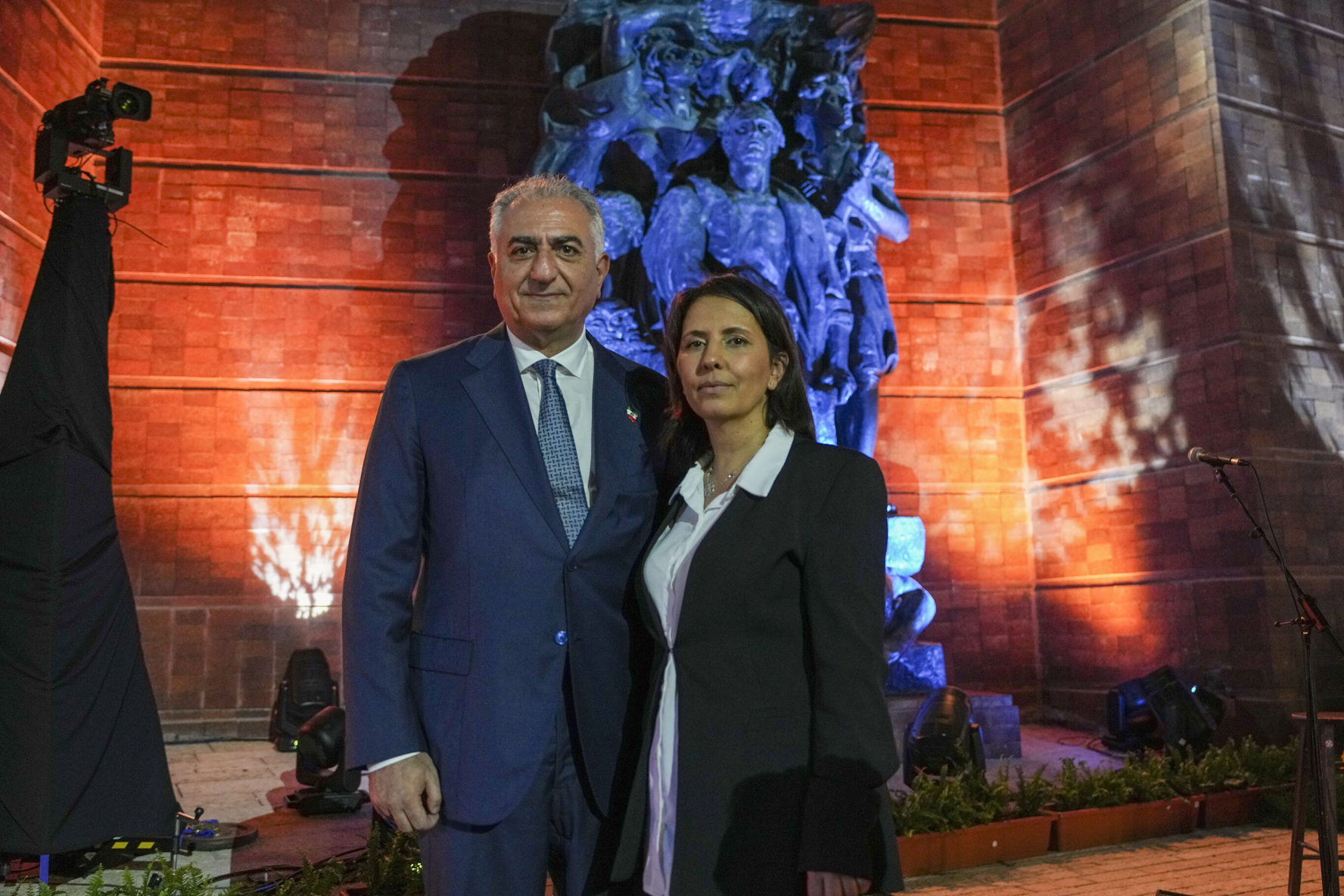Reza Pahlavi has tried to fashion himself as the leader of Iran’s opposition and a key personality in its future.
Tehran, Iran – A visit to Israel by the son of Iran’s last shah, during which he met with top officials, including Prime Minister Benjamin Netanyahu, has drawn mixed reactions online.
Reza Pahlavi, the son of late Shah Mohammad Reza Pahlavi, fled the country shortly before the 1979 Iranian Revolution, which birthed Iran’s current theocratic establishment. He has lived in the United States and has tried for decades to cast himself as the main figure opposing the Islamic republic.
The 62-year-old arrived in Israel on Monday and was received and accompanied throughout his visit by Intelligence Minister Gila Gamliel. He had meetings with Netanyahu and President Isaac Herzog.
Pahlavi, who bills himself as an “advocate for a secular, democratic Iran”, said his visit was aimed at building a brighter future because he wants “the people of Israel to know that the Islamic Republic does not represent the Iranian people”.
His visit was welcomed by the far-right Israeli government, which branded him “the most prominent Iranian to visit Israel in history” and referred to him as the “exiled crown prince” of Iran.
Pahlavi also engaged in a variety of activities with Israeli officials, including participating in a Holocaust Memorial Day event, visiting and praying at the Western Wall and visiting Rabbi Leo Dee, who lost his two daughters and wife this month in a shooting attack attributed to Palestinian assailants.
He did not make any mention of Palestine or visit the Al-Aqsa Mosque, which has been subject to repeated raids by Israeli soldiers during the holy Muslim month of Ramadan.
Iran and Israel did not have full diplomatic relations during the reign of Pahlavi’s father but maintained consular and economic ties in the 1960s and 1970s.
That was reversed after the 1979 revolution, and the two countries became arch-foes.
Tehran has promised for years that the Israeli state will be destroyed, and Iranian officials have threatened to “raze Tel Aviv and Haifa to the ground”. Israeli officials have repeatedly discussed plans to strike Iran and are blamed for sabotaging its nuclear facilities and assassinating scientists.
Iran has warned neighbours in the region against cosying up to Israel while Israel has been a rare voice of opposition in the region to the rapproachment between Iran and Saudi Arabia.
Perhaps unsurprisingly, the Pahlavi visit was dismissed by the Iranian Ministry of Foreign Affairs.
Ministry spokesman Nasser Kanani was asked if he would comment on the visit during a weekly press conference on Monday in Tehran, and he said, “Neither the person you’ve mentioned [Pahlavi] nor the purpose of this trip or the place he wants to travel to are worthy of discussion.”
Reactions online
After the protests that erupted across Iran in mid-September following the death of Mahsa Amini in the custody of the country’s so-called morality police, Pahlavi has increasingly tried to fashion himself as the main opposition leader and a key figure in a future Iran.
He has visited several countries, met with American and European politicians, and has forged shaky alliances with other opposition figures.
To Pahlavi’s delight, his supporters like to brand him as the “Cyrus of the time”, comparing him to Cyrus the Great, a revered ruler who founded the Persian empire millennia ago.
Many of those supporters were ecstatic about his visit to Israel, touting him as a champion and bridge builder and praising his appearance – complete with a “kippah”, or skullcap – at the Western Wall and his denouncement of anti-Semitism.
Critics, however, viewed that same image as hypocritical as Israeli forces carry out raids on Palestinians living in the occupied West Bank and the country is governed by what is regarded as Israel’s most far-right administration, which has imposed what international human rights organisations consider “apartheid” against the Palestinians.
“How can Pahlavi pretend to care about democracy and human rights when he aligns himself with those who trample on these values every day?” tweeted Sina Toossi, a fellow at the Center for International Policy in Washington, DC.
Pahlavi’s wife, Yasmine, also came under fire after she posted an image of a young female Israeli soldier on her Instagram account with the Farsi equivalent of the hashtag “woman, life, freedom”, which has been widely used since the protests last year.
“The slogan’s meaning has been entirely separated from its initial origins,” one Twitter use wrote. “Violent, oppressive, undemocratic law enforcement action is acceptable, even laudable, as long as a woman is participating in it.”
Ali Afshari, a political activist, tweeted that Pahlavi can convey a message on behalf of himself and his backers but not the entire people of Iran because he has not earned their support.
“Accepting an invitation by the most extremist government in the history of Israel, which is the subject of dissatisfaction by most Israelis, is not only nothing to be proud of but a cause for embarrassment,” he wrote.




